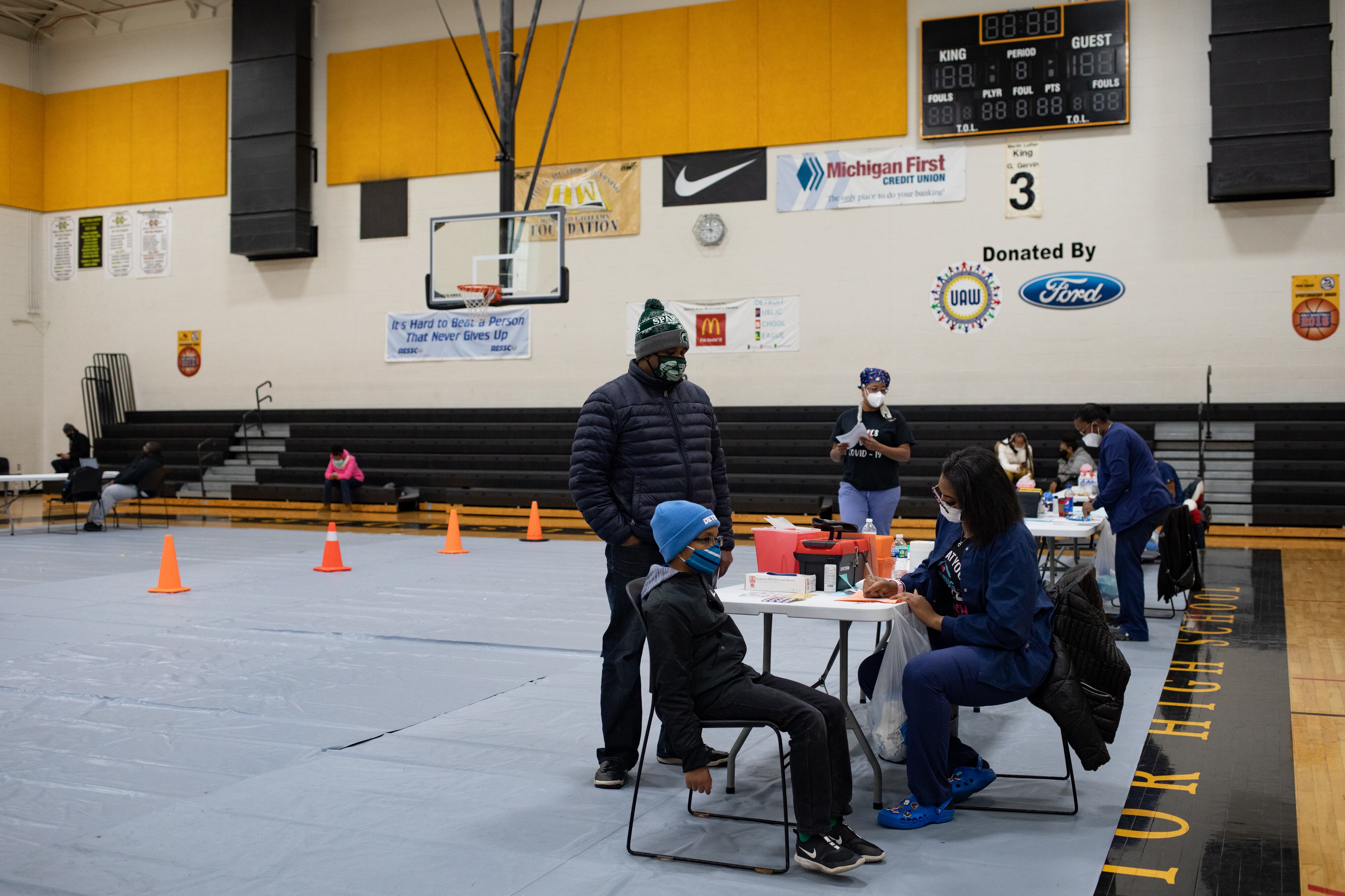The Detroit school district will further delay its return to in-person learning after the winter break as the city’s COVID cases continue to surge.
The district informed families and staff that it will shift to online learning Thursday through Jan. 14.
“Unfortunately, the city’s infection rate continues to climb and now has exceeded 40% for a seven-day average,” the district said in an email to parents early Tuesday morning. “Once the city’s infection rate decreases to more normal levels, then we will resume in person learning.”
In a followup response, Detroit Superintendent Nikolai Vitti affirmed the district’s announcement.
“Opening schools now with this record-high infection rate, coupled with low family and student vaccination rates, would only lead to an operational nightmare of positive cases and excessive quarantining that would lead to staff shortages and student absences,” Vitti said.
The decision mirrors recent moves by school districts across the state and country as the omicron cases surge. Lansing Public Schools announced it would move to virtual classes through Jan. 7 out of an “abundance of caution.” Ann Arbor Public Schools began the new year with remote learning and plans to return to in-person instruction by Jan. 10.
Other school districts opted to remain in person to begin the new year. In their decisions to bring back students on Monday, Both Kalamazoo Public Schools and Royal Oak Schools brought back students, informed district families in letters that they would continue to observe state and federal COVID-19 safety measures such as universal masking, case reporting protocols, and social distancing.
“Although a handful of Michigan school districts have chosen to revert to remotelearning, our district’s decision to remain in person is based on the fact that our layered mitigation strategies have successfully resulted in extremely low school-based transmissions,” said Kalamazoo Superintendent Rita Raichoudhuri in a letter to families and staff on Monday.
The district reported more than 100 students who previously participated in virtual school over the fall opted to return to in-person learning.
Both school districts applied for rapid home tests through the Michigan Department of Health and Human Services’ MI Backpack Home Test program. The pilot program plans to provide free antigen tests to Michigan students and school employees who want them.
The Detroit district initially postponed the return to school until Jan. 6.
It also adopted a new COVID testing policy that requires students learning in person to consent to a weekly test. Students who do not submit to testing by Jan. 31 will be enrolled in the district’s virtual school.
Eligible Detroit school district students will be able to pick up laptops at their schools Thursday or Friday or early next week, according to the school district. All laptops are expected to be returned before in-person instruction resumes.
Many Detroit school district parents and employees approved of the district decision in light of safety concerns in discussions on social media, with many expressing their disappointment that COVID case numbers across the city were high.
Ashley Gutierrez, a parent of three children at Munger Elementary-Middle School, was critical of the district’s decision given past student challenges with online learning, as well as the logistical hurdles for parents who can’t stay at home.
“I can’t give my kids what the teachers would give them at school,” Gutierrez said. “We do put them at risk going to school, but at the same time, I feel kids are better off having school in person just to get the right education and the right needs.”
But Kendra Visser Lincourt, an art teacher in the Detroit school district, said “It’s the safest call for kids and staff.”
“With the current numbers it is not safe to have 150 kids in and out of my art room every day. I am very relieved to know that, starting the second semester, every face-to-face student needs to test weekly.”






